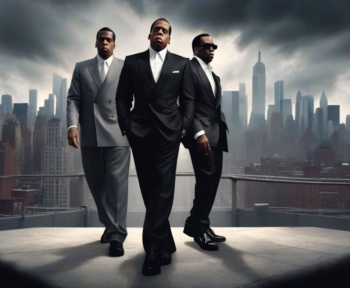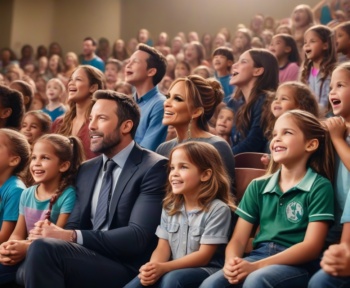In upstate New York, an unusual event has stirred lively debate and scrutiny well beyond its local beginnings, encapsulating themes of governmental authority, privacy rights, and the humane treatment of animals. Central to this debate is the raid on Mark Longo’s farm by officials from the New York State Department of Environmental Conservation along with the Chemung County Health Department. This raid resulted in the confiscation of his unlicensed pets, Peanut the squirrel and Fred the raccoon. However, the story unfolds with layers of complexity that seem to stretch the bounds of a typical wildlife law enforcement action.
Mark Longo, the farmer at the heart of this storm, has charged that the authorities’ real motive was to investigate his and his wife’s involvement with the adult content platform, OnlyFans. He drew attention to the authorities’ initial questions about the presence of cameras in his house, suggesting an intent that might extend beyond the mere concern of illegal animal keeping. Although mainstream media coverage, noted the peculiarity of questioning relevant to content creation on adult platforms during an animal seizure operation. This pointed intersection of issues raises profound questions about privacy, the scope of legal scrutiny, and the interplay between digital and physical oversight.
Further complicating the narrative is the fate of Peanut the squirrel, who was euthanized under the guise of rabies testing despite claims and subsequent evidence suggesting the animal was healthy. The decision to euthanize Peanut triggered a widespread backlash from both online communities and animal rights activists. The incident highlights possible overreach and the premature use of euthanization by regulatory bodies which undermines public trust and questions the motives behind such drastic actions.
In the aftermath of the raid, no charges or citations were brought against Longo, intensifying suspicions about the true intentions of the operation. The lack of legal follow-through has led some to categorize the raid as a “fishing expedition,” possibly intended to collect broader incriminating evidence under the convenient cover of enforcing wildlife laws. It prompts a broader discussion on the potential misuse of power by authorities under the facade of regulatory compliance.
Longo has publicly speculated that complaints related to his adult content business, especially juxtaposed with his role as a local babysitter, might have fueled the raid. He voiced concerns that his multifaceted public life could have invoked the ire of certain community members, thereby placing him under unwarranted scrutiny by law enforcement under the guise of animal welfare. These allegations suggest a tangled web of professional jealousy, community standards, and the selective enforcement of laws.
The incident has attracted attention from various perspectives, with notable discourse generated among followers of the MAGA ideology and others concerned with governmental overreach. This subset of the population views the raid as symptomatic of a broader governmental intrusion into private lives, echoing historical instances of perceived government oversteps. Their reaction is part of a larger narrative concerning the balance of power, privacy rights, and civil liberties in modern America.
Conversely, some observers have noted a perceived disparity in focusing so significantly on the rights of a squirrel while potentially overlooking broader human rights issues. This juxtaposition poses a philosophical challenge on the allocation of empathy and the societal values reflected in such disproportionality.
Widening the lens, legal and historical experts provide additional context to this unfolding drama. Dr. Emily Cartwright, an authority on civil liberties, notes that actions shrouded in governmental ambiguity often generate significant legal and societal pushback. These situations serve as litmus tests for the robustness of constitutional protections and the public’s tolerance for state intervention in private lives.
Historically, similar instances include periods such as Prohibition and various civil rights era police actions, which illustrate the tension between societal good and individual rights. These occasions often provoke significant reflections on governance and the reach of law enforcement into private lives, potentially recalibrating societal norms and legal boundaries.
Moving forward, Peanut’s story remains a poignant narrative, emblematic of larger disputes over privacy, governmental reach, and ethical treatment of animals. The considerable public and media discourse surrounding these events might influence future policies and practices addressing the delicate balance between enforcing laws and preserving personal freedoms.
As societal values continue to evolve, particularly in an age where digital and physical realms increasingly intersect, the story of Peanut the squirrel stands as a reminder of ongoing dialogues about the nature and scope of governmental power, the sanctity of private life, and the moral responsibilities held by those in positions of authority. This complex interplay will undoubtedly continue to challenge and shape societal norms and legal frameworks for years to come.




